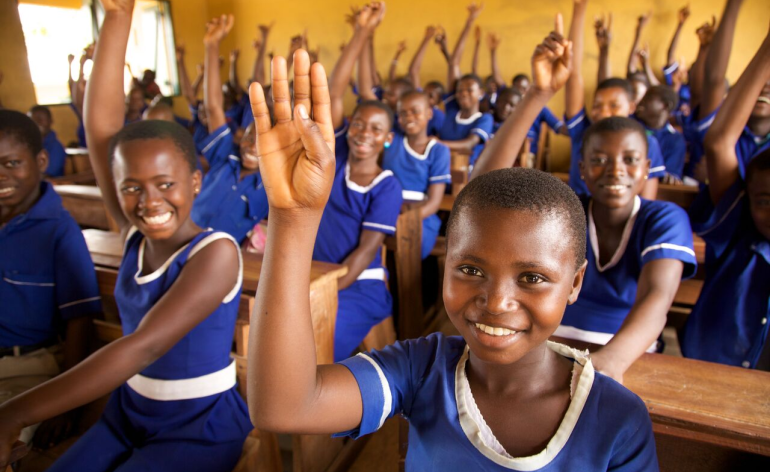
The Nigerian government has said it will get the 10.5 million out-of-school children back to school in the next five years.
The Permanent Secretary of the Federal Ministry of Education, Sonny Echono, made this known at a Two-Day Retreat held for stakeholders in the education sector for the presentation of the Ministerial Strategic Plan (MSP) blue print titled : Education for Change:
Echono said that some socio-cultural and economic factors were responsible for the increase in the Out-of-school children which needed urgent attentions.
The permanent secretary, while speaking on the progress recorded so far on MSP, said there was need to synergise the concurrent and exclusive list of education.
He noted that the sector was faced with a lot of challenges which necessitated the introduction of the strategic plan.
According to him, the plan is anchored on 10 pillars to include: Out-of-school children, Youth and Adult Literacy, Science, Technology, Engineering and Mathematics (STEM), Basic and Secondary Education and Teacher Education Capacity Building and Professional Development.
Others are; Curriculum and Policy Matters, Tertiary Education, Education Data and Planning, Information and Communication Technology (ICT) and Library Services.
He also said that the issues of girl-child education, due to poverty, should be looked into and addressed.
According to him, if you education a girl child, you are sure of educating the citizenry.
“We should begin to attack the problem of girl- child education. This is because if you have a female child that is educated in a family, they will influence the other children and their behaviour in later life.
“The minister has said that in five years, the issue of out-of-school children in our country should get behind us.
“It is a collective responsibility and we must begin to reconsider policies that will address this,” he said.
Echono lamented the spate at which politics and governance had affected the country’s educational system.
He also said that it was not enough to focus on building of schools but how the schools are being run, maintained and as well the provision of teaching and learning materials for qualitative education.
The permanent secretary, called the stakeholders to modernise the country’s educational system by ensuring that teachers were computer literate to delivery adequately in line with 21st century.
The Minister of Education, Malam Adamu Adamu who launched the Short and Medium Term MSP, said the federal government had commenced dialogue with states to find lasting solution to the various challenges confronting the ministry.
One of such challenges, Adamu said, was the implementation of Education for Change, which needed urgent attention to enable millions of children out of school return to classes to complete their education.
Adamu noted that some primary school teachers were political appointees who got into the profession through god fatherism, adding that they were not trained and as such not qualified to be called teachers.
The minister said: “The most important MSP we have taken into consideration is the out-of-school children programme, the adult literacy, the development of capacity of teachers and development of quality of their services.
“The human capital development index listed Nigeria 152 out of 157.There is no way we are going out of this except by making education great and give it the needed funds.
He expressed the determination of the ministry toward development of the capacity of teachers, to complement efforts aimed at returning out-of- school children return to school.
Also, the Minister of State for Education, Mr Chukwuemeka Nwajiuba, called on stakeholders to align with the states’ key priority areas with the MSP and Education 2030 agenda of the Federal Government.
Nwajiuba said working on the priority areas of the MSP would go a long way to develop the education sector.
“Nigeria deserves an educational system that will be a model in terms of quality and efficiency.
“Education is a critical investment for all countries and we must invest in qualitative and functional education of our country.
“Education is on the concurrent legislative list in Nigeria. This means that, it is a shared responsibility of the three tiers of government,” he said.
The minister of state, therefore, called for support from stakeholders to move the sector forward.
Sen. Ahmed Kaita, Chairman, Senate Committee on Tertiary Institutions and TETFund, stressed the need for educational administrators to design mechanisms for accountability and performance evaluation on all variables set to ensure quality education.
Kaita also urged stakeholders to cooperate with the Federal Government in the implementation of decisions of the retreat and other reforms to reverse the ugly trends in the sector.
Similarly, Rep. Ifeanyichukwu Ibezi, Deputy Chairman, House Committee on Tertiary Education and Services called for policies that would ensure that the Nigerian child received education and prepare them for the future.








